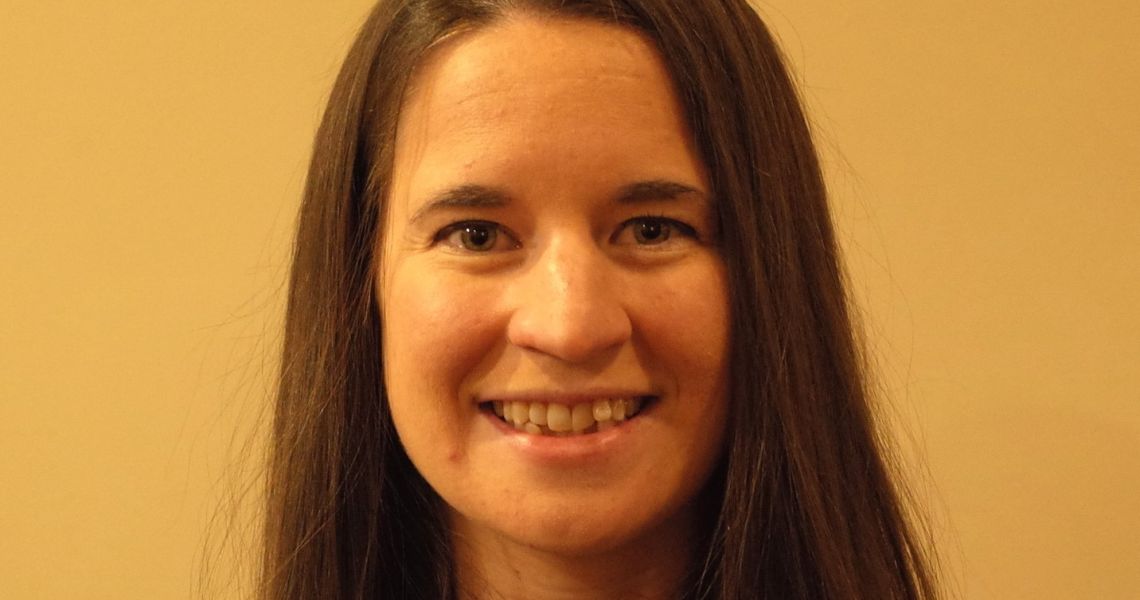When she’s not mobilizing critically ill patients hooked up to multiple lines and tubes, Stephanie Hiser, DPT, enjoys traveling and hiking with her husband. Hiser recently joined the George Washington University (GW) School of Medicine and Health Sciences (SMHS) Doctor of Physical Therapy (DPT) program as an assistant professor. A board certified cardiovascular and pulmonary specialist, she brings to the program seven years of clinical experience and research in the acute and critical care settings. In her role, Hiser serves as the lead instructor for Clinical Conference I, and also instructs first-year DPT students during Foundations of Interventions. This spring she will co-teach Management of Cardiopulmonary Dysfunction and also has plans to assist with Clinical Medicine and Pharmacology.
When she started her DPT studies at the University of Miami, Hiser was interested in the research and treatment of patients with spinal cord injuries. During her training, however, Hiser’s interests shifted toward patients with cardiopulmonary dysfunctions.
“It was during my acute care rotation that I realized my passion for acute care and critical care, which ultimately led me to pursue further specialized training in those areas,” Hiser explained. This passion led her to create and lead an elective course at University of Miami’s DPT program, “Critical Care for Physical Therapists,” which she taught for the first 2 years.
Following graduation, Hiser continued her training at the Johns Hopkins University and the University of Delaware’s Acute Care Physical Therapy Residency program. Still eager for more, she enrolled in the Johns Hopkins Critical Care Fellowship for Physical Therapists. During her time at Johns Hopkins, Hiser co-authored three clinical research studies focusing on the psychometric properties of commonly used ICU outcome measures.
“Given my interest in research, I decided to enroll in a PhD program at the Johns Hopkins Bloomberg School of Public Health, where I’ve continued my research in my niche area of early rehabilitation in the ICU setting,” she said.
In addition to her clinical research, Hiser assisted in the translation and cross-cultural adaptation of the Functional Status Score for the Intensive Care Unit in multiple languages, including Turkish, Chilean-Spanish, Japanese, and Korean.
Hiser knew that she wanted to teach, but she also wanted ample clinical experience to provide a breadth of personal anecdotes to her instruction. Now, in the later stages of completing her PhD, with seven years of clinical experience, Hiser is ready for the next step in her career. She was drawn to the GW DPT program because of its size and the close-knit faculty.
Outside of the classroom, Hiser, born and raised in Kentucky, enjoys cheering for University of Kentucky basketball, horse racing, and Kentucky bourbon. Throughout her educational experience, Hiser had many amazing professors who inspired her, and she very much wants to provide the same inspiration to students at GW.
